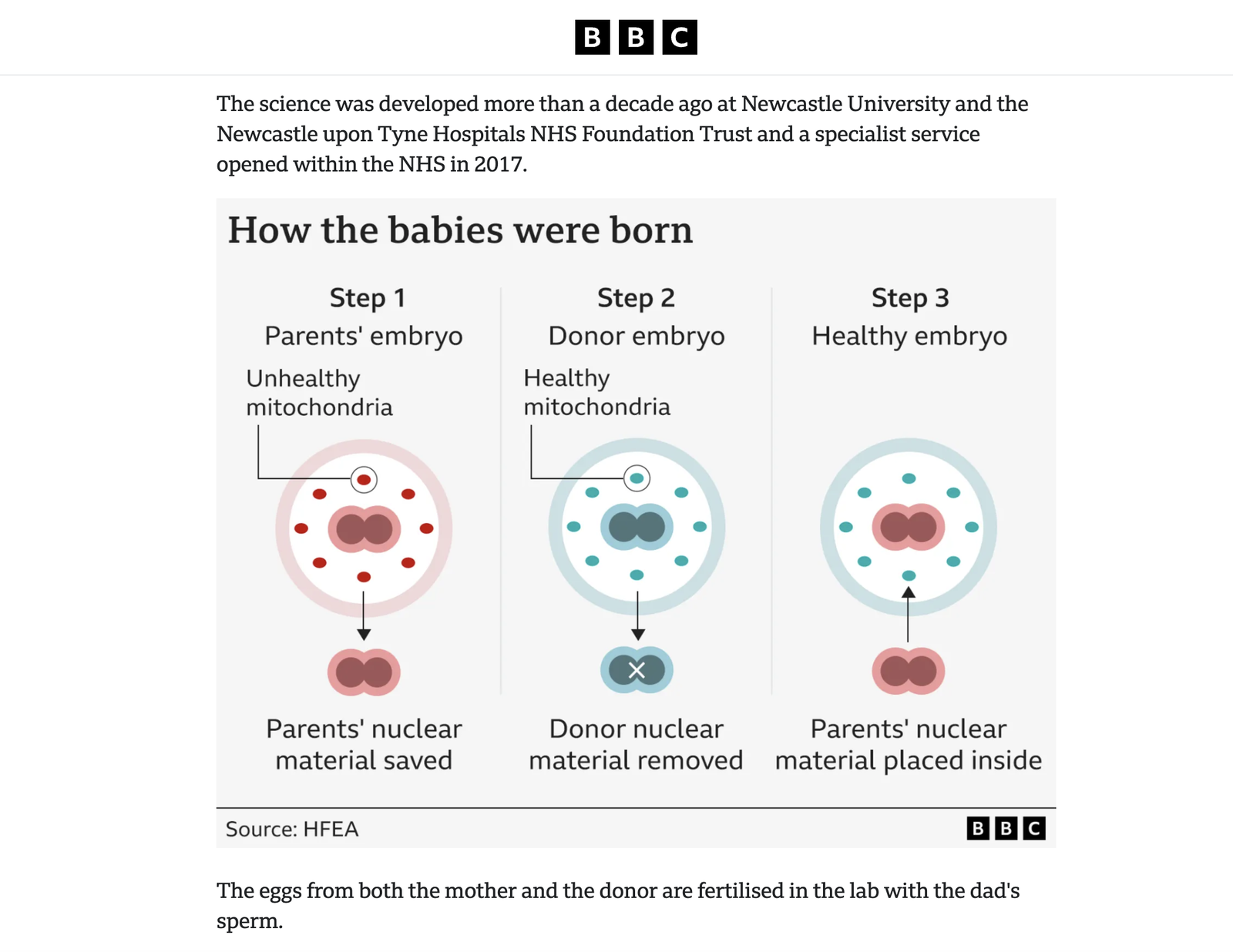Mitochondrial disease can be deadly. Mitochondria are the powerhouses of our cells, but in a fallen world, genetic conditions passed through mitochondrial DNA (which only comes from the mother) can wreak havoc on the body, even leading to stillbirth. So a new technology is helping couples who otherwise could not have healthy children start families. But is this new technology really as compassionate as it sounds?
Biblical compassion (not the compassion of our world) starts with God’s Word and recognizes the humanity of each and every person made in God’s image.
Well, biblical compassion (not the compassion of our world) starts with God’s Word and recognizes the humanity of each and every person made in God’s image. We don’t look at just part of the equation—in this case, the parents. We look at the parents and the new baby, taking into account how the technology actually works. And when you do that, this technology no longer seems compassionate. And always remember, there is a foundational principle we must always apply as Christians—right from fertilization, a human being exists who is made in the image of God.
You see, to create babies free from mitochondrial defects, this technology out of the UK uses a three-parent method. In this method, two embryos are created via IVF, one with the mother’s egg and father’s sperm and one with a donor egg and the father’s sperm. The nuclear DNA from both embryos is then removed, and the nuclear DNA from the mother/father embryo is placed into the father/donor embryo. This means baby has mom and dad’s nuclear DNA, but a donor mother’s healthy mitochondrial DNA. The resulting baby is then born without a mitochondrial condition. According to reports, the eight babies created this way in the UK are doing well.

But did you notice what just happened? Two embryos—two people, genetically distinct, made in God’s image—were created, and then one was completely destroyed, created only to harvest genetic material from. Essentially they created a “DNA donor” and then discarded that “unnecessary” life. (And surely many, many other lives were created and destroyed during the research and later embryo selection process. Reproductive technologies nearly always carry a heavy human cost.)
This is far from compassionate. I have no doubt that the parents of these babies love their children and are thankful for the opportunity to have a healthy baby (they say as much in the article)—but at what cost? At the cost of another child. A child was intentionally created and then destroyed to create a different, healthy child. That is not compassion. That is another example of children being sacrificed on the altar of adult desire. Yes, child sacrifice given a different name!
Each of those babies, unhealthy mitochondria and all, was made in God’s image and deserved the right to life.
In a fallen world, there are horrible diseases, like mitochondrial defects, with tragic consequences. But the answer to fighting the effects of the curse in our bodies, and in the bodies of our children, isn’t to create and then end the life of another human being made in the image of God. Each of those babies, unhealthy mitochondria and all, was made in God’s image and deserved the right to life.
We cannot allow a blind sense of “compassion” to lead us to ignore a tiny, helpless embryo denied the opportunity to live.
Life, whether in the womb or the petri dish, begins at the moment of fertilization, and that life deserves to be protected, not treated as a science fiction experiment.
Thanks for stopping by and thanks for praying,
Ken
This item was written with the assistance of AiG’s research team.
